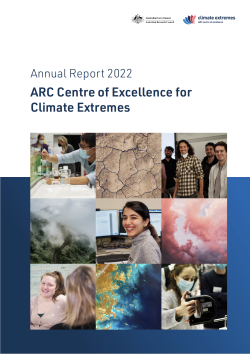The ARC Centre of Excellence for Climate Extremes reduces Australia’s economic, social and environmental vulnerability to climate extremes.

2023 in Review

From the Director

“We have published 178 papers in 2023… papers that form the substantive foundations for future research. A remarkable statistic is that 13.6 percent of our papers are in the top 10 percent of papers cited worldwide in all disciplines.”
Professor Andy Pitman
Director, ARC Centre of Excellence for Climate Extremes
From the Chair of the Advisory Board

“Over those last six years, the Centre has become a cornerstone of Australia’s climate research efforts — and it’s no surprise given the level of talent and innovation present at our participating universities and partners.”
Dr Tony Press AO
Chair, Centre Advisory Board
Case Study: Briefing Notes
The ARC Centre of Excellence for Climate Extremes produced a number of high impact Briefing notes in 2023, garnering global attention for the Centre’s research and researchers.
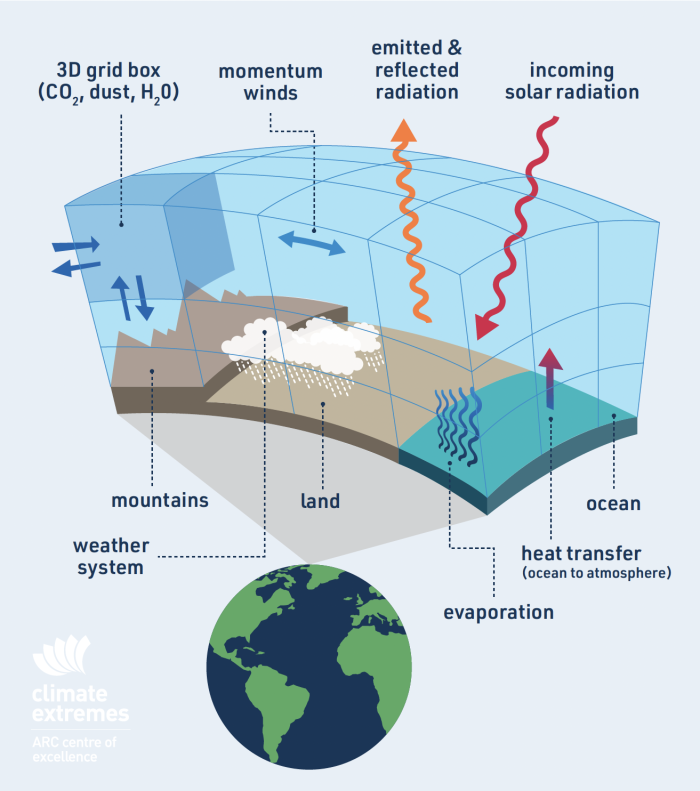
Our Vision: Our Centre will transform the understanding and modelling of climate extremes, including their dependence on climate change and variability, to advance scientific understanding and assist decision-makers.
Case Study: Collaborative Science and Communications
When Dr Georgy Falster’s research on the Pacific Walker Circulation was accepted in the prestigious journal Nature, the proactive efforts of the Engagement and Impact team elevated its visibility, securing high search rankings, media coverage, and recognition while also fostering Dr Falster’s long-term communication skills and confidence.


Climate science leaders of the future
The Researcher Development Program at the ARC Centre of Excellence for Climate Extremes develops national capacity in climate science by training and mentoring the next generation of researchers. It equips them with the intellectual and technical capacity required to take on the research challenges of the future. The program, which involves all Centre researchers, covers fundamental research and communications skills, professional development, mentoring and leadership opportunities.
Case Study: The State of Weather and Climate Extremes Report
The State of Weather and Climate Extremes report released by the ARC Centre of Excellence for Climate Extremes in March 2023 was a vital summary of the science behind Australia’s climate extremes in the year prior.

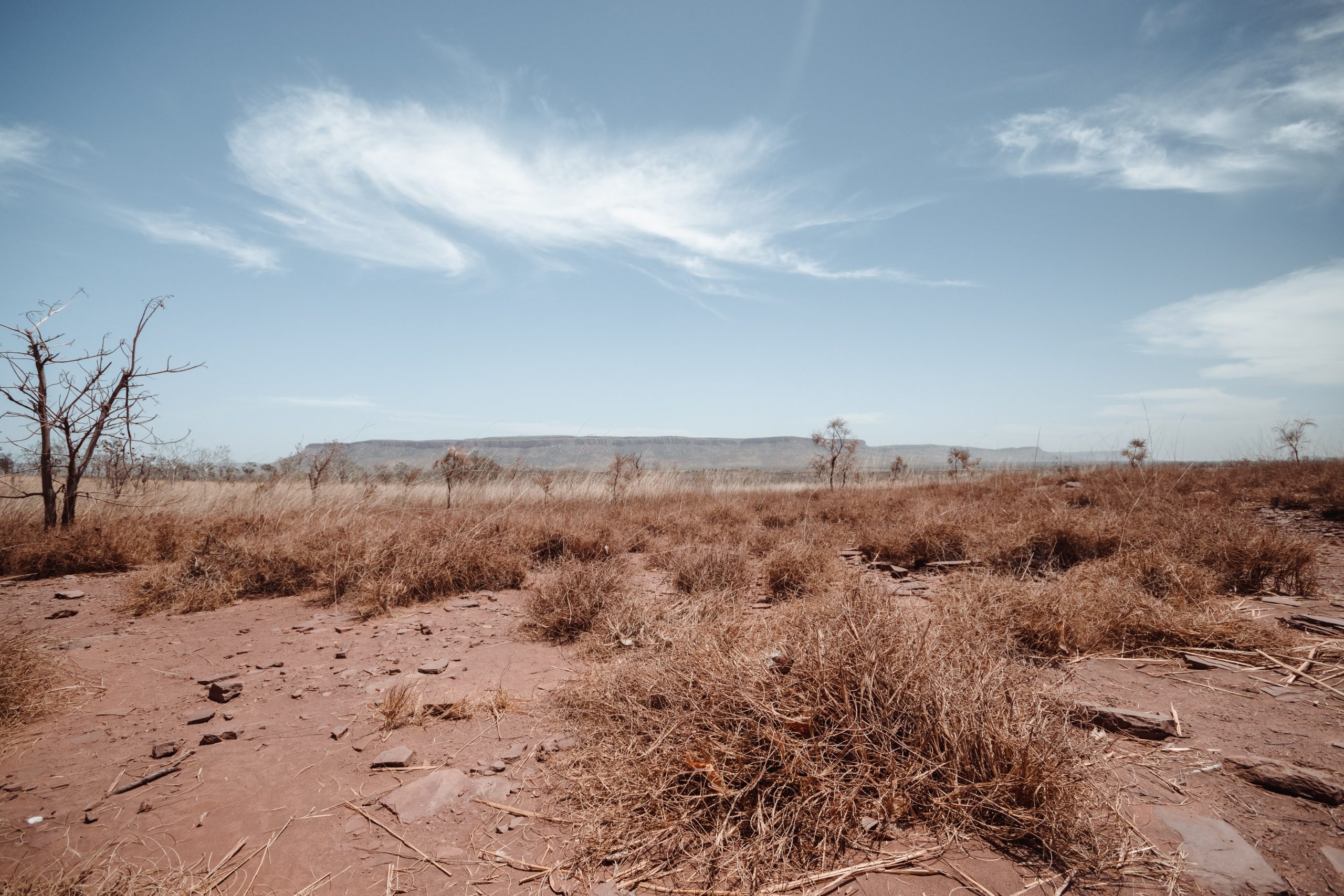
Climate extremes research in 2023
Weather and Climate
Interactions Research Program
What controls the strength, frequency and path of fronts in the Australian extratropics, and how do these factors affect extremes?
Attribution and Risk Research Program
How do the relative roles of large-scale, regional and local-scale processes and their interactions shape Australian extremes and govern their changes?
Drought Research Program
What determines the onset, persistence and termination of drought?
Ocean Extremes Research Program
How can we best model and predict marine heatwaves?
Modelling Research Program
Numerical models of the weather and climate system are key research tools.
Computational Modelling Systems
We facilitate other people’s research outcomes, with contributions which are sometimes small and sometimes big.
Research snapshot: Heavy rain in subtropical Australia
In the late summer and autumn of 2022, heavy rain
and floods caused havoc along the coastal margins of
southern Queensland and northern New South Wales.
Motivated by the events of that year, Dr Michael Barnes
led a more general study on the causes of heavy rainfall
in the region. This work has recently appeared in The
Quarterly Journal of the Royal Meteorological Society. Dr
Barnes and his colleagues (Dr Malcolm King, Professor
Michael Reeder and Professor Christian Jakob) found
that heavy rainfall along the subtropical eastern seaboard
almost always followed the same meteorological script:
large undulations in the jet stream (known as Rossby
waves) produce slow-moving, upper-level low-pressure
systems (known as “coherent cyclonic potential vorticity
anomalies”) together with moist onshore easterlies.
Because the upper-level low-pressure systems move
slowly, they remain in the area for days, continually lifting
moist air to make clouds and produce copious rain.
Barnes, M.A., King, M., Reeder, M. & Jakob, C. (2023) The
dynamics of slow-moving coherent cyclonic potential
vorticity anomalies and their links to heavy rainfall over the
eastern seaboard of Australia. The Quarterly Journal of the
Royal Meteorological Society, 149, 2233–2251. https://doi.
org/10.1002/qj.4503

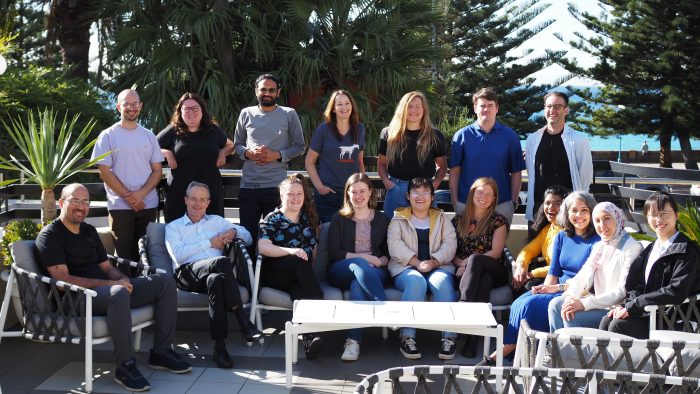
Governance, Management and our Commitment to Equity, Diversity and Inclusion
Our goal is to make the ARC Centre of Excellence for Climate Extremes a forward-thinking organisation that enables all staff and students, regardless of background, to do their best work in a professional and compassionate environment.

Connecting climate science to Australians & beyond
Climate science is a fundamental part of protecting and preparing communities from the extremes of climate change. Floods, fires, heatwaves, storms, rising oceans – extreme events – need to be understood as part of a bigger picture.
Climate scientists are being asked to provide projections and advice to help governments, industry and decision-makers prepare for the decades to come. We need to be able to look ahead and plan for the future.
The Engagement and Impact team at the ARC Centre of Excellence for Climate Extremes brings together some of Australia’s most talented policymakers, media and communications specialists, science communicators, content makers, designers and more, to ensure that the essential science of climate extremes is heard by the people who need to know.
Case Study: Learning in Real Media Environments
In 2023, the Centre committed substantial efforts to empower researchers with long-term communication and media skills crucial for their future careers. The Centre prioritised building a strong foundation and fostering the development of essential writing, pitching, speaking, and presenting skills through workshops and in-studio training.
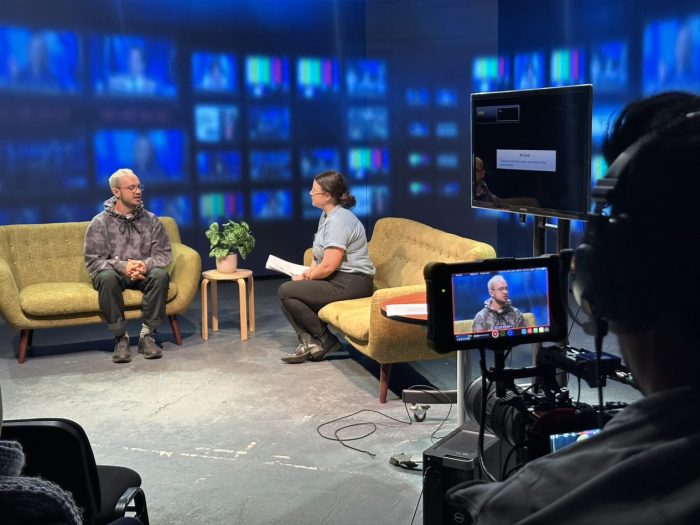
The ARC Centre of Excellence for Climate Extremes financial reports, Key Performance Indicators and credits are available in the PDF version of the report below.
ARC Centre of Excellence for Climate Extremes – Annual Report 2023
From the Chair of the Advisory Board
Climate Science Leaders of the Future
Weather and Climate Interactions Research Program
Attribution and Risk Research Program
Ocean Extremes Research Program
Computational Modelling Systems
Governance, Management and our Commitment to Equity, Diversity and Inclusion


